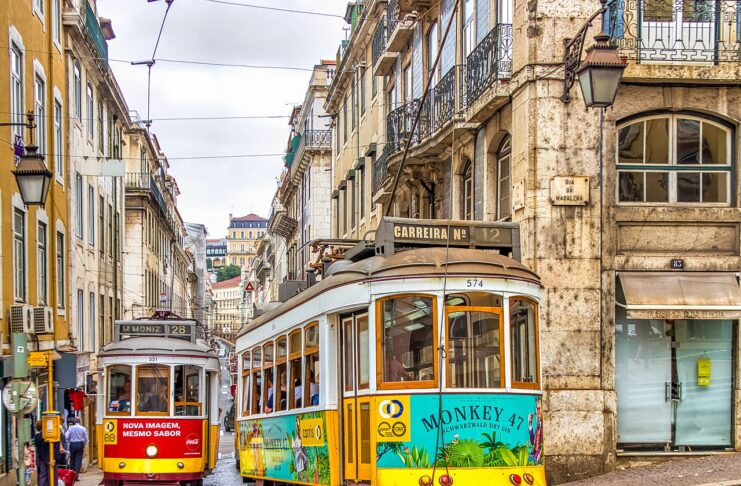I find myself in mainland Portugal in a city in the upper west, in the middle between Lisbon and Coimbra. For those who know Portugal, the administrative capital (Lisbon) is not the same as the capital of knowledge (Coimbra), nor is the capital of entrepreneurship (Porto) the same capital of spirituality (Fátima). Portugal gathers, scattered throughout its territory, symbolically cultural bastions, which, due to their historical load and strength, carry centuries of tradition in them, in one or another characteristic that distinguishes them from the others. Even in my city, it has sometimes been difficult to distinguish which capital we would like to be. Only recently has it been assumed that the city of Caldas da Rainha is the city of waters and the arts, in other words, the city where the oldest Thermal Hospital in the world is built and, at the same time, being a UNESCO creative city of Crafts and Folk Arts.
I could here list several reasons to mention that in Portugal, there is a sense of belonging and parochialism that makes us assume that each medium-sized city, with more than 20 thousand inhabitants, can be the capital of something, as if it could bring together it’s advantages in to the detriment of its neighboring cities. The rankings and the race for growth have somehow motivated bad choices that only encourage disorganized growth in a coastal strip from Vila Real de Santo António to Valença do Minho.
There is a certain identity transition in Portugal that is in fact changing. The investment incentive programs brought, in a first phase, the structural axes with improved road communication routes for the automobile. Since the last rescue of the IMF and the advent of tourism until 2019, Portugal has lived years of acceptance and development of a new general self-esteem, which has provided not only the creation of innovation start-ups, all over the country, but also the creation of businesses complementary to the tourism sector, which were supported in this way.
Thus, it was expected that our lost king forever promissed to return from the North of Africa, the 16th Century, King Dom Sebastião would have reincarnated in Cristiano Ronaldo, and that Portugal would effectively have, through the great bubble of tourists in Lisbon and Porto, the ability to save the economy of an entire country with only 10 million inhabitants. From the mountain goat cheese of Serra da Estrela, to the blueberry in the Alentejo greenhouse, or the burel de Vouzela and the wicker basket of Ferreira do Alentejo, ending in the ceramic piece from Caldas da Rainha or the blown glass bottle from Marinha Grande, craft came to take over the recovery of a whole generation of traditional craftsmen and techniques that represent the soul of a people. These small businesses, representing a new generation of entrepreneurs, come to value the noblest characteristics of each region and provide an economy of scale that provides the sustainability of small producers if they constitute a new network of decentralized entrepreneurship.
What happened to the pandemic was a global fact, leveraged by a rapid injection of funds that accelerated the digitization of these small producers. It doesn't mean that everything is digital, but I believe that with this opportunity, most micro companies now have the ability to communicate globally. This transition, leveraged by greater ease of communication, will allow a rapid growth of a virtual economy, facilitated by the advent of Amazon and freight carriers. In fact, today there is no periphery or location that is not accessible by GPS. The world of the pandemic, was the world of online shopping, of the Lookiero of this life and of experimenting with a new form of acquisition, ideal for small craft entrepreneurs.
Returning to the old model may still take a while, or it may be a tricky hypothesis. In Portugal, already with the possibility of circulation without a mask and with the highest vaccination rate in the world (85%), there are still outdated restrictions, such as the red, yellow or green lists in the United Kingdom, where the vaccination rate is significantly lower.
I believe that the new trend of valuing inland communities, which came associated with digital nomads and the growth of internal tourism, will provide the possibility of assuming an increasingly effective decentralization of work opportunities, and that this renews a cultural idea which will no longer be associated with the administrative, cultural, technological, academic or leisure sector, but with the great possibility of managing all these channels through the use of a computer. So for me the great cultural transition that is taking place in Portugal at the moment is the “opportunity”, which is increasingly accessible to the global community and the possibility of virtual access, which is the best showcase we have for when all of us in the world, we can travel back to Portugal.






